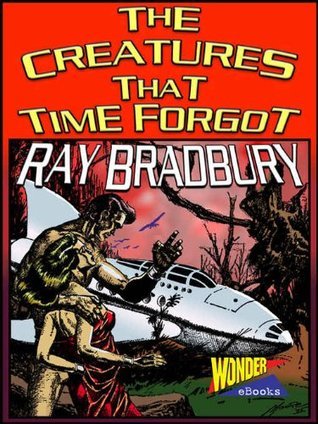
Tomorrow's Child
Book Description
In a world where technology and humanity collide, a couple faces the ultimate decision: to embrace the future or cherish the past. 'Tomorrow's Child' dives deep into the emotional turmoil of longing, love, and the fear of loss as they grapple with the implications of creating a new life—one that transcends the boundaries of human understanding. As they navigate the ethical labyrinth of advanced intelligence, their relationship hangs in the balance, teetering between devotion and dread. Will they choose the child of their dreams, or the familiar comforts of their own flawed existence? What happens when the future threatens to eclipse the present?
Quick Book Summary
"Tomorrow's Child" by Ray Bradbury is a poignant science fiction tale that explores the intersection of technology and humanity through the eyes of a young couple, Peter and Polly Horn. When a revolutionary new birthing technology goes awry, their eagerly anticipated son is born into another dimension, manifesting as a blue, pyramid-shaped creature to his parents. Grappling with shock, grief, and societal pressures, they must confront what it truly means to love and parent. The story delves into themes of alienation, adaptation, and the ethical quagmires of technological progress. As the couple faces heartbreaking decisions about their future and their child's place in the world, Bradbury poignantly raises questions about acceptance, the limitations of human understanding, and the sacrifices love demands.
Summary of Key Ideas
Table of Contents
Technology Versus Humanity
Peter and Polly Horn live in a technologically advanced future where medical leaps have rendered childbirth seemingly idyllic. When Polly gives birth using a new dimensional birthing technique, the unforeseen happens: their child is born into the wrong dimension and appears physically alien—a blue, pyramid-shaped entity unrecognizable as human. The couple is thrown into shock and confusion, challenged by the bizarre nature of their child and the cold, clinical explanations given by the hospital staff. They quickly realize that neither advanced science nor well-intentioned experts are equipped to soften the emotional turmoil or diminish the sense of loss enveloping them.
Acceptance and Alienation
As Peter and Polly attempt to comprehend their child’s new reality, they confront feelings of grief, isolation, and guilt. The narrative masterfully examines their longing for a normal life and companionship with their child. Their home becomes a place of quiet struggle, with Polly especially haunted by the conflict between her maternal instincts and her deep discomfort with her son’s form. Socially, the family faces misunderstanding and subtle ostracism, further intensifying their sense of alienation. Bradbury uses this dissonance to highlight the timeless human need for acceptance—both from others and within oneself—when confronted by the unfamiliar.
Parental Love and Sacrifice
As the Horns navigate the challenges of raising their unusual child, Bradbury delves into the essence of parental love and sacrifice. Despite their initial revulsion and heartbreak, Peter and Polly desperately seek solutions, consulting scientists and philosophers, holding on to hope for a return to normalcy. Ultimately, they are forced to choose between keeping their child close in a compromised existence or risking everything to reunite with him in his dimension. Through their decision, Bradbury illuminates the selflessness inherent in true love and the courage it takes to let go for the sake of a loved one’s well-being.
Ethical Dilemmas of Progress
The story is suffused with ethical questions surrounding technological progress—namely, what happens when innovation outpaces human understanding and emotional readiness. Bradbury prompts readers to consider the consequences of prioritizing advancement over empathy and asks who is responsible when lives are irrevocably changed by scientific missteps. The Horns’ ordeal exposes the moral gray areas of playing with the fabric of nature, raising questions about consent, parenthood, and the bounds of human responsibility in the face of unintended outcomes.
Coping with the Unknown
In its conclusion, "Tomorrow's Child" underscores humanity’s resilience when coping with the unknown. The Horns’ journey charts a painful but ultimately redemptive path toward acceptance, suggesting that love can transcend physical appearance and even dimensional divides. By focusing on the couple’s evolution from despair to a bittersweet acceptance, Bradbury leaves readers pondering the true meaning of family, the depths of compassion, and the paradoxical necessity of both embracing and surrendering to change in a swiftly shifting world.
Download This Summary
Get a free PDF of this summary instantly — no email required.





